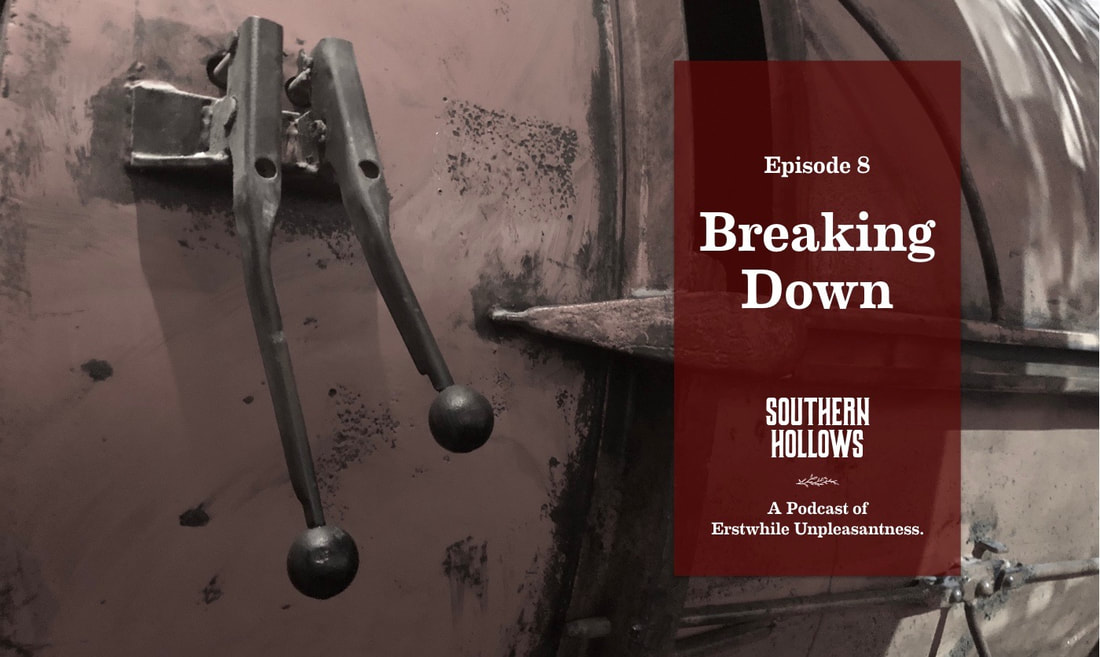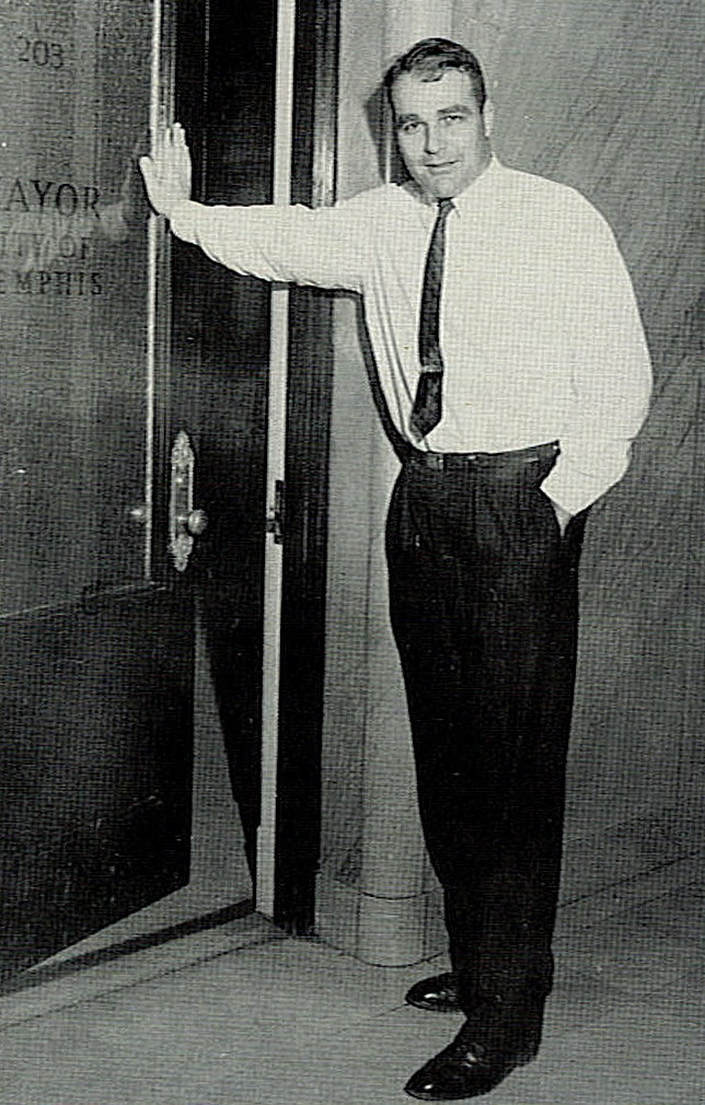|
On a cold, rainy afternoon in 1968 a Memphis garbage truck malfunctioned and killed the two "garbage packers" riding inside. It was the last straw for the city's more than 1,000 sanitation workers, who walked off the job in protest of the conditions. But they ran head-on into an immovable Mayor, and the ensuing battle brought Dr. Martin Luther King, Jr. to town for what was to be his last march.
Listen to Southern Hollows Episode 8, Breaking Down:
Now that you've heard the episode, take a closer look: Dangerous work.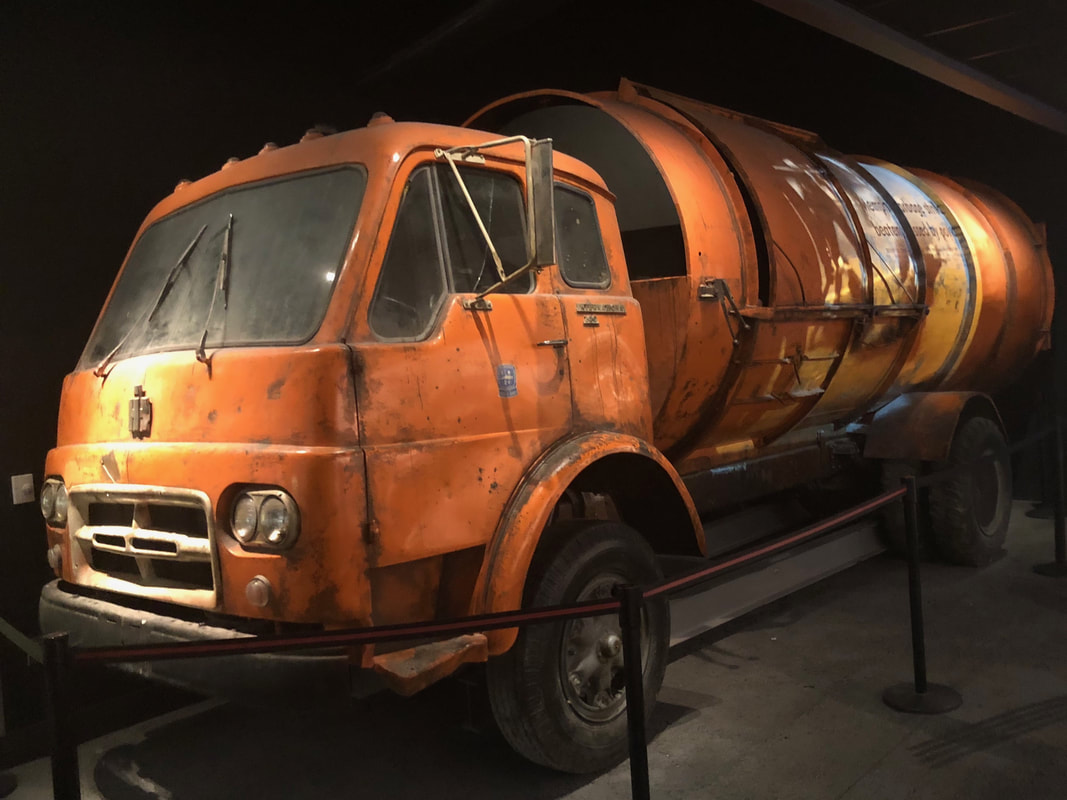
Some of the garbage packers faced the added danger of working on antiquated trucks they called "weiner-barrel" trucks. This was the kind of truck that Echol Cole and Robert Walker were working the day they were killed. (Photo: Southern Hollows/S. Liles)
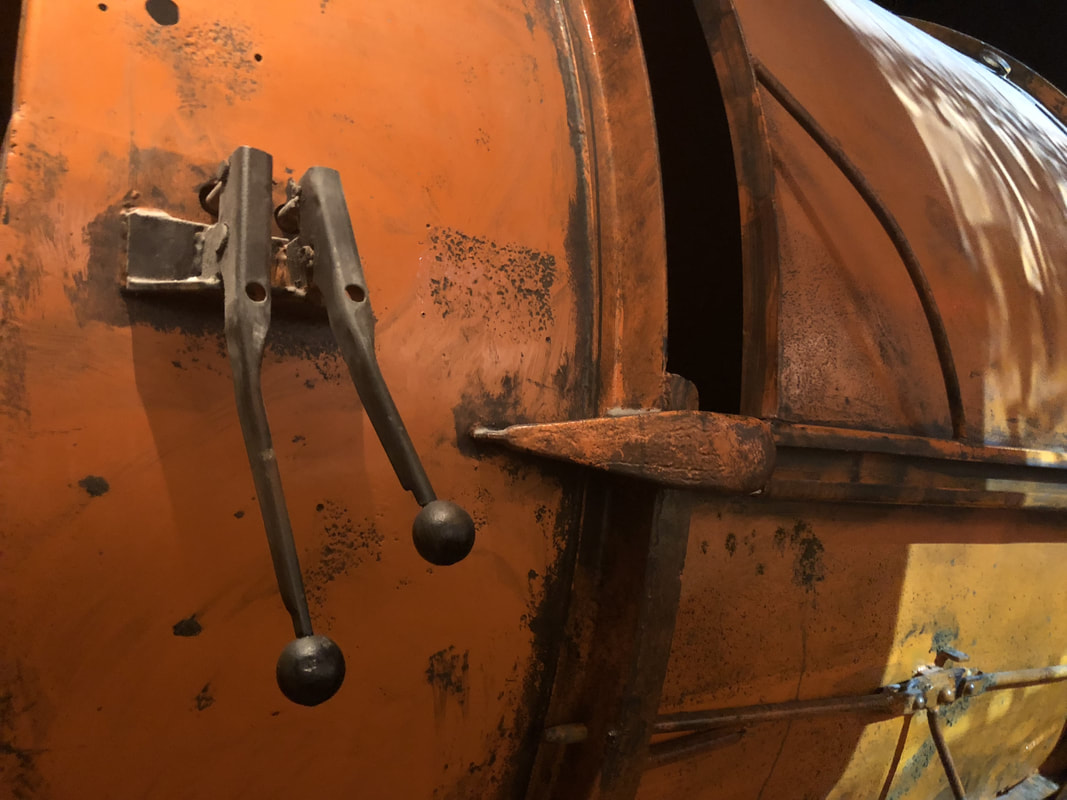
(Photo: Southern Hollows/S. Liles)
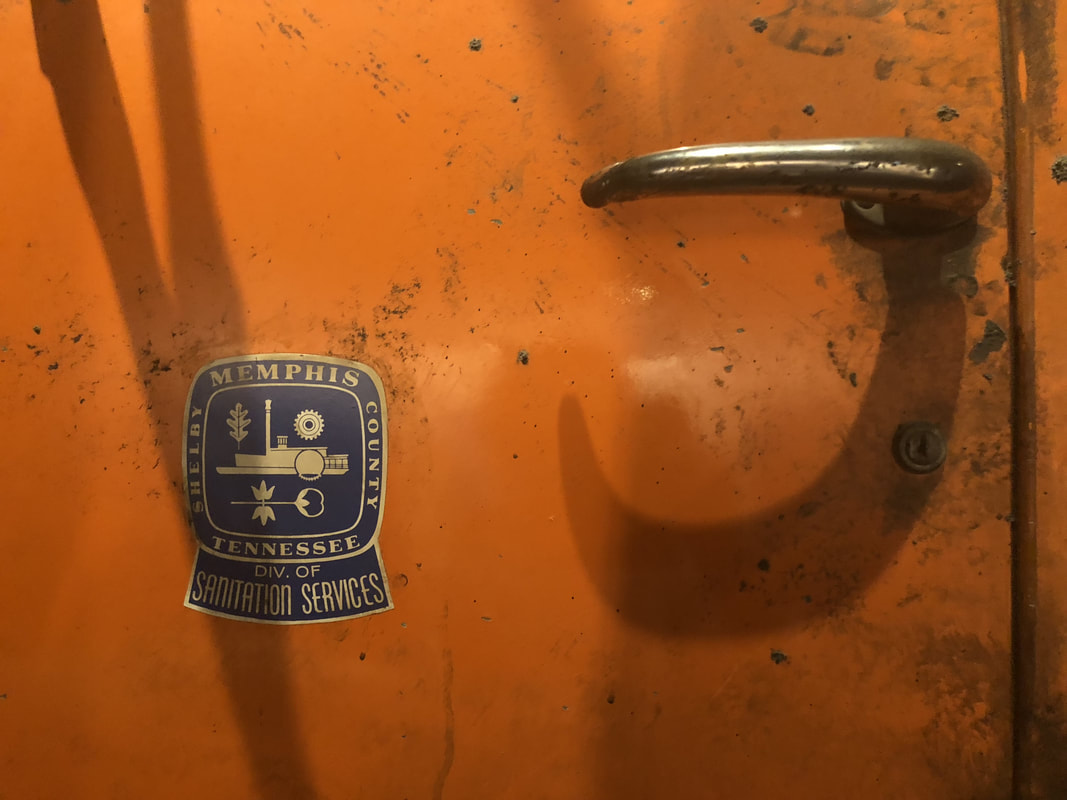
(Photo: Southern Hollows/S. Liles)
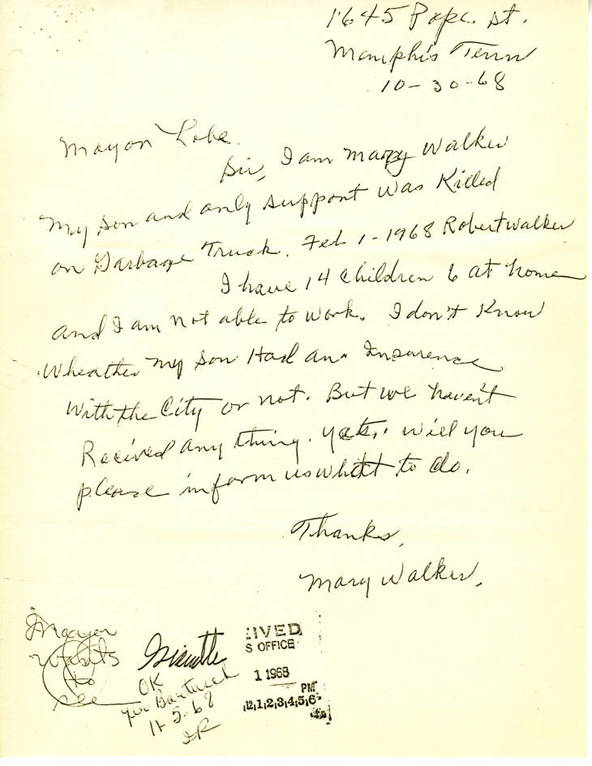
Robert Walker's mother writes Mayor Loeb for help. (Memphis and Shelby County Room, Memphis Public Libraries.)
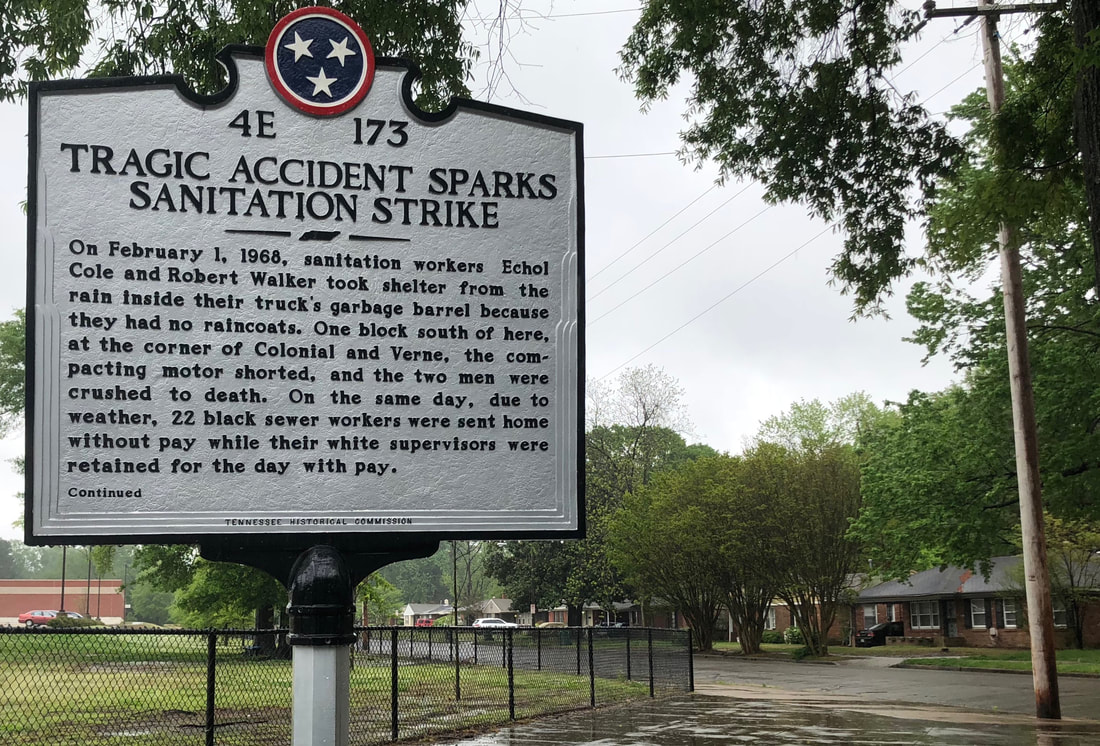
In 2014, a historical marker was placed near the site of the accident. (Photo: Southern Hollows/S. Liles)
Mayor Henry Loeb doesn't give an inch.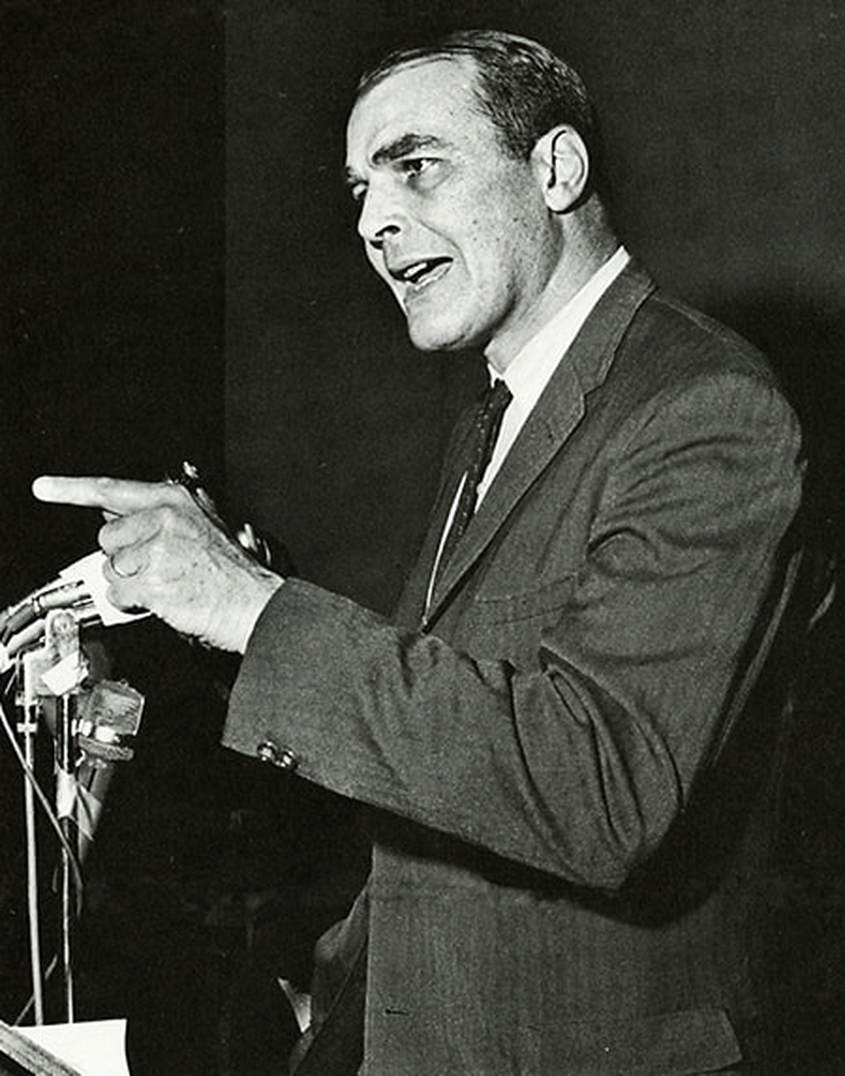
Mayor Henry Loeb. (Photo: Special Collections Dept., University Libraries, University of Memphis.)
King joins the strikers.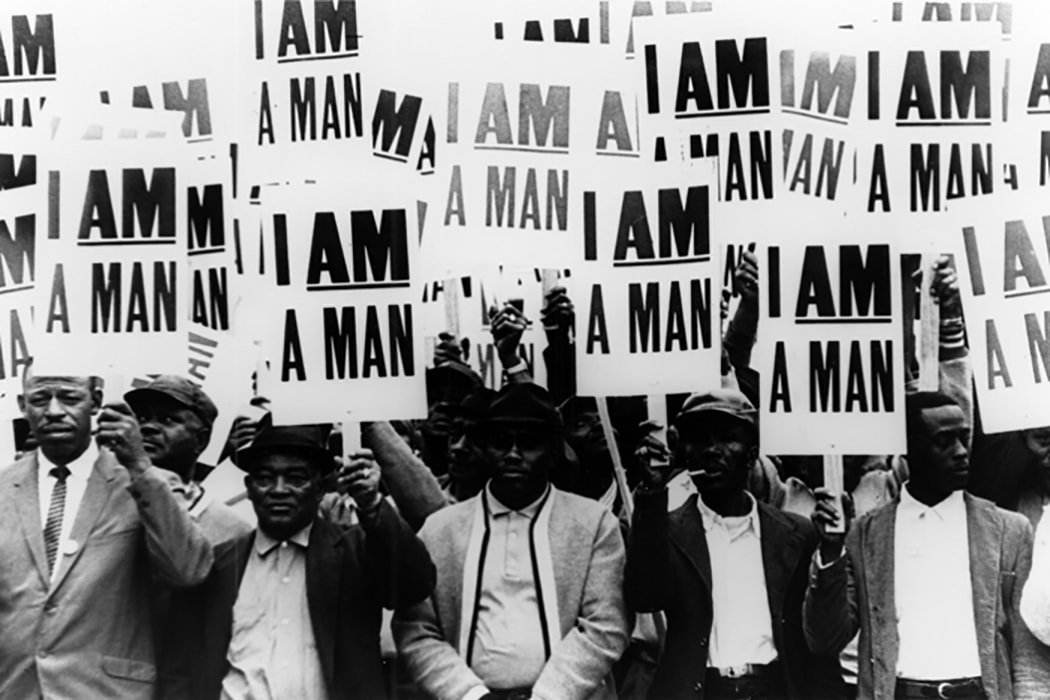
The March 28, 1968, march was massive, and strikers emerged from Clayborn Temple with signs that read "I AM A MAN," which would come to be the iconic image of the strike. (Photo: Walter P. Reuther Library/Wayne State University)
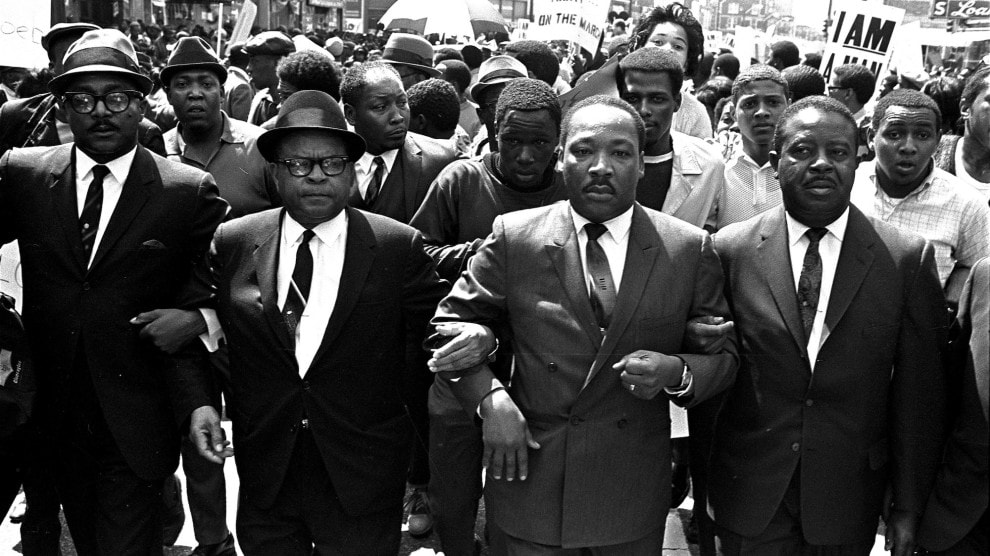
Dr. Martin Luther King Jr. joins the sanitation workers for a massive march in Memphis on March 28, 1968 that is ultimately turned back by police. (Photo: Jack Thornell/AP)
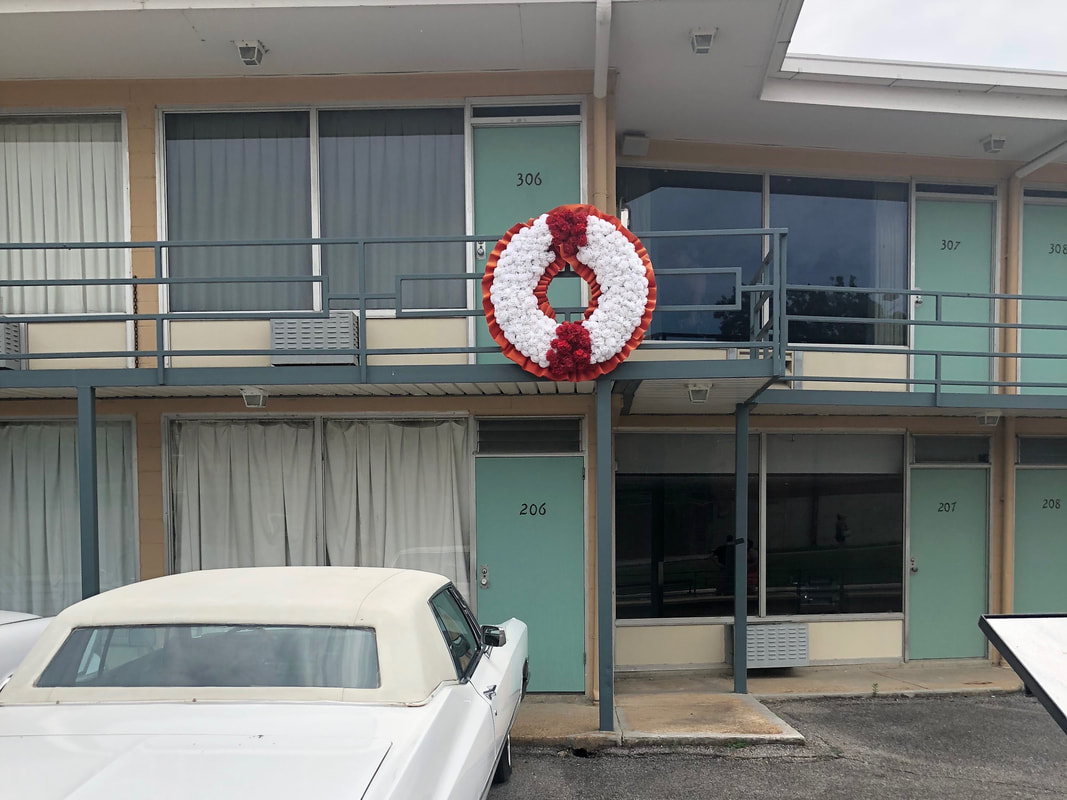
King's room at the Lorraine Motel in Memphis, which is now the National Civil Rights Museum. (Photo: Southern Hollows/S. Liles)
Read this book: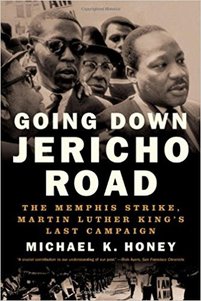
So many of the new things I learned about the strike came from historian Michael Honey's fantastic book Going Down Jericho Road. From Amazon: "With novelistic drama and rich scholarly detail, Michael Honey brings to life the magnetic characters who clashed on the Memphis battlefield: stalwart black workers; fiery black ministers; volatile, young, black-power advocates; idealistic organizers and tough-talking unionists; the first black members of the Memphis city council; the white upper crust who sought to prevent change or conflagration; and, finally, the magisterial Martin Luther King Jr., undertaking a Poor People's Campaign at the crossroads of his life, vilified as a subversive, hounded by the FBI, and seeing in the working poor of Memphis his hopes for a better America. Learn more here.
The credits.
"1300 Men: Memphis Strike '68," Striking Voices and TheRoot.com. Ten-part video series retrieved May, 2018.
"1968 Memphis Sanitation Workers' Strike Chronology," www.afscme.org. Retrieved May 28, 2018. Beiffus, Joan Turner. At the River I Stand: Memphis, the 1968 Strike, and Martin Luther King. Carlson, 1989. Branch, Taylor. At Canaan's Edge: America in the King Years, 1965-1968. Simon and Schuster, 2007. Honey, Michael K. Going Down Jericho Road: The Memphis Strike, Martin Luther King's Last Campaign. W. W. Norton and Co., 2007. National Civil Rights Museum, permanent exhibits, May, 2018.
0 Comments
Leave a Reply. |
Archives:
November 2019
Categories:
All
Don't miss an episode. Subscribe now: |
